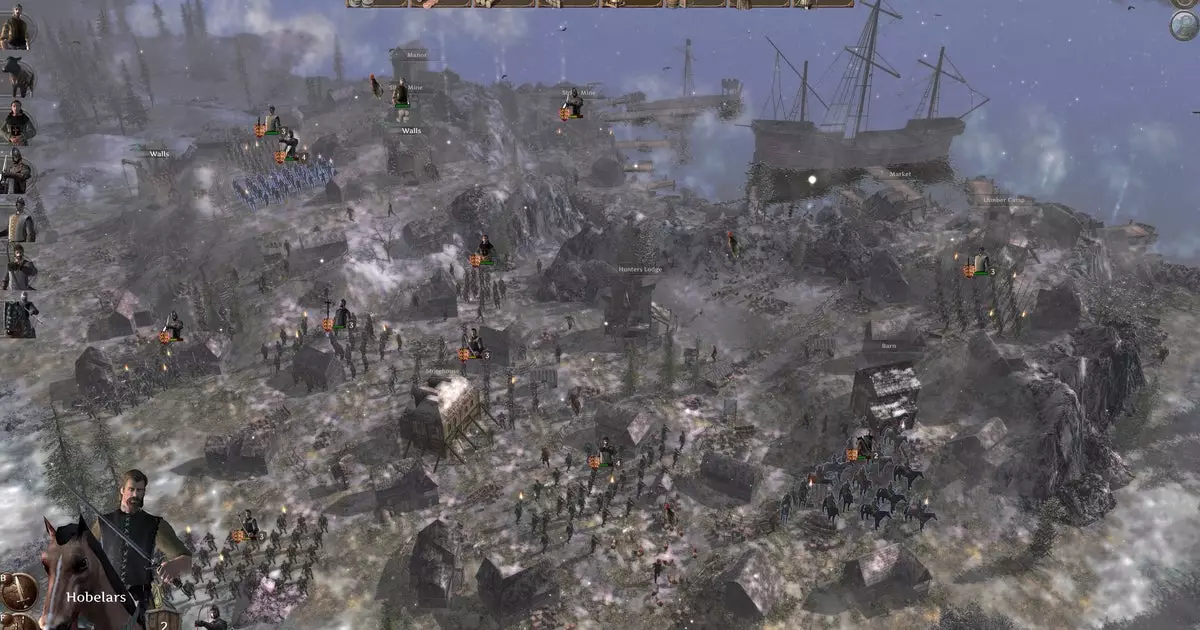The Crusades, a series of brutal medieval conflicts fueled by religious fervor, are often viewed through a rather simplistic lens today. Originating in the 11th century, these wars were primarily ignited by the desire of Latin Christians to reclaim Jerusalem from Muslim rule, following its conquest by the Rashidun Caliphate. It’s intriguing—and frankly disheartening—to see how this multifaceted period has devolved into a collection of memes and sound bites in contemporary discussions, often appropriated by shadowy ideologues craving to make sense of their modern identity through the lens of historical conflict. This oversimplification misses the intricacies of the era, bottling it into a one-dimensional narrative devoid of the diverse motives, cultures, and consequences that punctuated these campaigns.
Gaming as a Cultural Lens
In attempts to delve deeper into the intricate dynamics of the Crusades, modern game developers have turned to historical adaptations as a means of exploration. Among the latest is “Knights Of The Crusades,” a 4X strategy game that positions players within the tumultuous environment of Crusader-era politics and warfare. The description of “a grand journey through the First Crusade and beyond” conjures a vivid image of an expansive virtual world where players navigate religious conflicts, territorial conquests, and shifting allegiances. By re-enacting historical events, these games not only entertain but also allow players to engage with history in a unique way that textbooks cannot fulfill.
The Dilemma of Glamorizing Violence
However, there lies an ethical dilemma at the core of such gaming experiences. The portrayal of medieval warfare often begs the question of glamorization versus historical accuracy. As seen in “Knights Of The Crusades,” players are encouraged to raid hamlets and engage in battles that can be disturbingly viewed as heroic exploits. This raises concerns about romanticizing a period marked by violence and suffering. While the game developers may not intend to glorify the bloodshed, the interactive nature of video games can sometimes obscure the harsh realities of history—transforming brutal acts into mere gameplay mechanics.
Examining the historical narrative of the Crusades through video games introduces a spectrum of experiences, from the majestic battles portrayed in player campaigns to the nuanced moral questions surrounding the actions taken in those narrative arcs. From an ethical standpoint, questioning these portrayals is essential. Are we merely framing a historic conflict as an engaging game mechanic, or are we losing sight of the genuine pain and suffering incurred during these epochs?
Confronting Historical Realities
The promise of “Knights Of The Crusades” to present unique cultural perspectives within its gameplay further complicates the historical narrative. By promising distinct mechanics for Pagan, Orthodox, Muslim, and Western Christian factions, the game may provide players with the understanding that these groups were not merely adversaries in a binary conflict but rather complex societies with rich civilizations and intricate worldviews. The ambitions of these characters and the ethical implications of their decisions should encourage players to explore beyond the surface and engage critically with the tumultuous history of the period.
Though some may argue that the Crusades should remain a somber chapter best left to academia, gamifying such historical periods can also provide a platform for meaningful discourse. Where else can players wrestle with the ethical conundrums of becoming “the bad guys” like those depicted in franchises such as “Assassin’s Creed,” but through their choices in gameplay? Through interaction, players may better understand the ramifications of their actions—both within the game and in the greater context of history.
Channeling Curiosity and Playfulness
Despite my personal hesitations regarding titles such as “Crusader Kings,” which may overwhelm less seasoned history buffs with their complexity, the potential of strategy games to educate remains profound. The narrative of the Crusades, with its fervent zeal and tragic consequences, offers an enticing canvas ripe for exploration. Games can serve as a playful yet educational medium—a tool for prompting curiosity about a historical era that warrants deeper investigation.
Choices made in games like “Knights Of The Crusades” do not merely alter in-game outcomes; they could influence how players view moral dilemmas in the real world, inviting a more nuanced understanding of cultural conflicts. While engaging in these virtual campaigns, I find myself yearning for a deeper dive into the history that inspired them—all while navigating through the battle-worn landscapes of medieval ideologies, strategies, and consequences that echo through time.


Leave a Reply